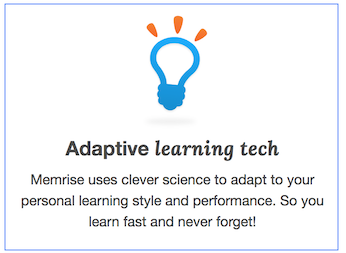How to Make Homework Meaningful for Students
A MiddleWeb Blog
 Too often, I find myself asking the same two questions of my kids when they come home from school. The first—how was your day? The second—how much homework do you have?
Too often, I find myself asking the same two questions of my kids when they come home from school. The first—how was your day? The second—how much homework do you have?
I grew up doing homework…and lots of it. Looking back, some of it seemed designed by teachers to provide necessary practice with a new skill learned that day. On occasion, it served as an extension of something we covered during class.
Other times, however, homework felt like cruel, unusual, and unnecessary punishment.
Recently, more teachers and school districts are rethinking the type and amount of homework assigned. Just recently, for example, Marion County Public Schools in Florida announced a “no homework” policy for the fall, joining other school districts in states like Massachusetts and Vermont that have already instituted homework bans.
Does Homework Really Help Students?
A lot of research has been done on whether homework actually helps students achieve greater academic success. As we sift through the research findings, what we discover is that not all homework is created equal.
Some assignments do—in fact—help students work towards learning goals, while others actually impede learning and/or create conflict at home (Cooper, Robinson, & Patall, 2006). With that in mind, here are a few key considerations for teachers…

► When designed properly, homework increases recall, speed, and use of content and skills (Dean & Marzano, 2013).
► Homework tends to be more effective for older students (middle and high school) than for elementary students (Cooper, Lindsay, Nye, & Greathouse, 1998).
► Shorter homework assignments are more effective than longer ones (Trautwein et al., 2002).
► Homework tends to be more effective when it piques students’ interests and is task-oriented, rather than being targeted at deep learning and/or extensive problem-solving (Hattie, 2009).
► Parent support for homework helps students, whereas parental involvement in the homework tends to do just the opposite (Cooper, Robinson, & Patall, 2006).
In other words, teachers who merely assign homework won’t be nearly as effective as those who design tasks geared to support and enhance student learning. With some added attention, however, homework can be a valuable extension of the classroom for reviewing and mastering content and to get students ‘geared up’ for the next day.
Tech Tools for Helping with Homework
One nifty way to help students with their homework is to create simple study slides that include video explanations from the teacher.
Teachers start by identifying key concepts or vocabulary terms in their lesson. Then they create a Google Slide for each term that might include a definition, key characteristics, examples, and/or images related to the term. Finally, they use the Google Webcam Record Extension to record up to 30 seconds of the teacher teaching/explaining the concept.
Here is a quick example of one I put together (just double-click the video, bottom right). For a step-by step breakdown on creating/adding video to a Google slide, check out Alice Keeler’s post. A similar process could also be used to assess student learning by asking your students to identify key terms/concepts and create their own slides for your review.
Connecting with Home Base
As a parent, I really appreciate teachers who make their instruction and worked-out homework examples accessible from home. I know a number of teachers who encourage their students to view/utilize the practice exercises and instructional videos available at Khan Academy.
Other educators prefer to create their own video tutorials with easy-to-use-tools like Screencast-o-matic. It allows teachers to capture their voice and computer screen with just a click of a button and then upload it to YouTube, Vimeo or any number of other sites so it can be shared with students. A brief tutorial of how to get started can be found here.
School Video Recorder is another free webtool that allows teachers to record a video with their webcam and upload it directly to Google Drive so their students can access it. It’s perfect for someone using a Chromebook or another laptop with the Google Chrome browser who wants to demonstrate skills, record instructions, capture part of a lecture or video anything else they want to share with students.
What I really like about School Video Recorder is that the video uploads while it is being recorded, cutting down on any additional time needed for upload over a congested WiFi school network. For privacy purposes, the video streams directly from the browser to Google Drive, without going through intermediate servers.
Homework Reminders and Memory-builders

Phone numbers are kept private, and messages are sent with no open replies. Teachers can also track who is receiving their homework updates and who is not.
I recently came across a simple, slick tool for creating rich, multimedia flashcards for students called Memrise. Memrise uses something called “elaborate encoding” and “spaced repetition” to help students learn and remember different terms and concepts. I think you’ll see several homework applications here, including support for ELLs and other language learners.

Engaged students learn, revisit, and play a games with the words, while Memrise tracks their progress and automatically builds in strategically spaced reviews of terms that students are struggling to master. A clever learning app.
Homework Doesn’t Have to Be “All-or-Nothing”
At some point or another, nearly all educators assign homework. We want students to be successful learners, but realize that there often just isn’t enough time during class to get everything done, including those important practice and mastery tasks.
However, just because we assign homework doesn’t mean it’s helping our students… or even that it’s worth their time. As we see in the research, if we don’t invest the time to design homework lessons, it can even backfire and take away from learning. But with added attention and effort, we can design take-home tasks that are shorter, more accessible, and more meaningful — and that boost the impact of our teaching.
________
References
Cooper, H., Lindsay, J. J., Nye, B., & Greathouse, S. (1998). Relationships among attitudes about homework, amount of homework assigned and completed, and student achievement. Journal of educational psychology, 90(1), 70.
Cooper, H., Robinson, J. C., & Patall, E. A. (2006). Does homework improve academic achievement? A synthesis of research, 1987–2003. Review of educational research, 76(1), 1-62.
Dean, C. B., & Marzano, R. J. (2013). Classroom instruction that works: Research-based strategies for increasing student achievement. Boston, Mass: Pearson Education.
Hattie, J. (2008). Visible learning: A synthesis of over 800 meta-analyses relating to achievement. Routledge.
Nuthall, G. (2005). The cultural myths and realities of classroom teaching and learning: A personal journey. Teachers College Record, 107(5), 895-934.
Trautwein, U., Köller, O., Schmitz, B., & Baumert, J. (2002). Do homework assignments enhance achievement? A multilevel analysis in 7th-grade mathematics. Contemporary Educational Psychology, 27(1), 26-50.




































For years I have assigned homework in a weekly packet. I find it is meaningful for beginning study skills. The packet is given the Friday before the week the assignments will be carried out. This allows parents to plan ahead for afterschool activities in the coming week, without the stress waiting each day to find out what homework I will assign. Parents are so thankful to get the spelling words ahead. My homework may be turned in any day but it’s all due by Thursday. Except for Spelling, most of the homework is a review of lessons taught 1 or 2 weeks prior.
I believe this has always been a topic within schools and especially at the grade school level. As a college student studying to become a K-6 teacher, knowing what helps and motivates students to learn is a big deal. Thank you for the insight!